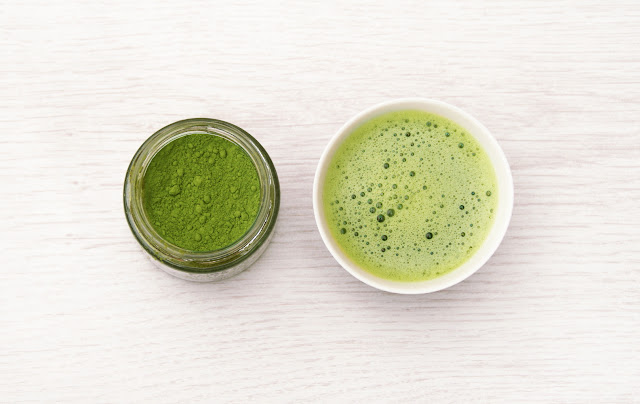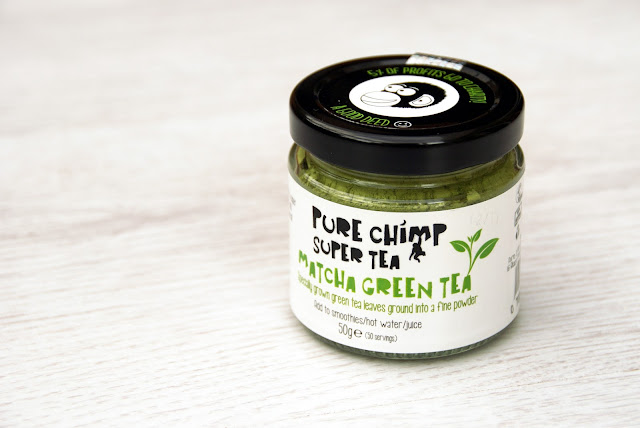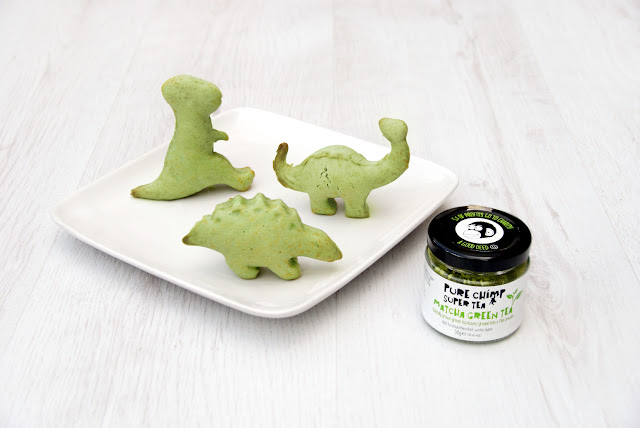Green tea is definitely the 'in' thing for the health-conscious, but why? Is it because it's green, so it must be healthy? Is it because it's tea, not coffee, and is a generally prettier, tidier word? Is it because it's not as strong as coffee so it's easier to drink without adding calories with milk and sugar?
Well, I admit, all of those are certainly valid points in my silly little world, but they are most certainly not the reasons why green tea should definitely be in your cupboard and at the top of your shopping list, and matcha in particular.
Antioxidants
Free radicals are unstable molecules that damage cells in your body by trying to steal electrons from healthy cells to become stable themselves, and this results, externally, in dull skin and lines, and internally, inflammation. Antioxidants are your molecular defence against this; by attaching to the free radicals instead, they render them inert but complete, reducing the threat on healthy cells. All teas actually contain a degree of antioxidants, but green tea easily contains the most. Green tea contains a type of flavonol called catechins, which have been found to have anti-inflammatory, anti-cancer and anti-aging properties, among countless others. In green tea, the most abundant catechin is EGCG (epigallocatechin gallate), and matcha contains quite literally more than 100 times that of standard green tea - but even standard green tea wins over other tea types.
Pure Chimp is the only matcha I've found that actually states a number - in this case, Pure Chimp contains 137 times the EGCG of standard green tea, and to give that information, they must surely know what they're talking about. No one else seems to give that information.
polyphenls are compounds in green tea that help to eliminate free radicals and safeguard healthy cells
Skeletal Protection
Those EGCGs that green tea and matcha are so abundant in also decrease the number of cells that break down bone and increase the number and activity of the cells that build it, which can help to strengthen them and prevent injuries, which you'll be grateful for as you get older.
Weightloss
I admit that this is one of the two reasons I started drinking green tea (the other is because I have an immense love and fascination for Asia, Japan in particular). I can't say in all honesty if it has worked for me personally because I exercise a lot and I eat sensibly, but it certainly makes me feel cleaner and healthier, which helps my dedication to a healthy lifestyle, not to mention the fact that I've developed a ravenous taste for it.
But green tea can increase thermogenesis, which is just a fancy word for heat produced in the body, which takes calories to achieve; it can increase fat oxidation, which is the process that causes the body to use fat for energy; it can also reduce fat absorption and reduce appetite. Matcha delivers even more in this area, and while green tea and matcha do contain caffine, they both have a lot less than coffee but still provide a good buzz due to its L-theanine content, which results in a state of 'calm but alert' - meaning you're both focused and relaxed at the same time. This means that, by drinking it half an hour before your workout, you will pay more attention to what you're doing without tensing up, ultimately aiding form and performance and, in turn, results. And again, matcha is particularly high in L-theanine.
It's also only about 3 calories a cup and should be consumed without sugar or milk, which means it can be consumed by everyone, regardless of lactose-intolerance or silly, self-imposed dietary restrictions.
Mental Protection & Calm
L-theanine is unique to the tea plant, which means that tea in general is the best thing to drink when you're stressed out. It has the ability to reduce anxiety and aid concentration, and the reason for this is thought to be by increasing the alpha waves in the brain which play a part in co-ordination and communication in the brain, and are also responsible for wakeful relaxation - you know, that wonderful time you're lying half-asleep in bed on a Sunday morning and have yet to open your eyes. The EGCG catechins in green tea have also shown to help protect the neurons in the brain and reduce the decline in brain function, as well as prevent the build-up of plaques and proteins that occur in people with Alzheimer's disease and cause a decline in both memory and cognitive function.
So, green tea is, in short, a super tea, and the above benefits can also be found to a lesser degree in both black tea (particularly that grown in Kenya) and white tea. But if green tea is a super tea, then matcha must be the tea of the universe. It is higher in EGCG and L-theanine than any other tea, both of which play an enormous role in protecting your bones, your brain, your cells and helping maintain general physical health. Part of its incredible strength is due to the way matcha is consumed. Unlike other tea which is brewed by diffusing tea leaves in water and then throwing them out, matcha is brewed from ground-up tea leaves which are mixed into the water and consumed as a whole. This of course makes it much stronger and takes and acquired taste, but it doesn't take long to adjust to. I recoiled from my first cup of matcha 2 years ago, but I kept at it, finished the tub and now it's a cupboard staple.
Quality - benefits and taste - is also affected by its grade. Basic is the lowest and cheapest grade of matcha, and is not typically drank but used in baking. Unsurprisingly, it's sometimes labelled specifically as 'baking' rather than 'basic'. Premium is a higher quality and is both drank and used in baking, and is more expensive. Ceremonial grade is the third and highest grade of matcha, and is usually only drank. It's the purest matcha with the highest content of all the good things, and subsequently the most expensive - but it's worth every penny.
But you don't need to drink it like a fish to benefit. One cup of matcha a day is extremely effective - in fact it's the advised frequency of consumption - and as a single serving of matcha uses just 1g of tea (1/2 teaspoon), a 50g jar of Pure Chimp's ceremonial grade matcha will give you 50 servings. Oh yeah, that's right: maths. And at £12 for that 50g jar, it works out as 24p a cup.
How much are you paying for your Starbucks?
And here's a recipe for a true matcha cake that maintains the delicate taste of green tea.
And, also, they're dinosaurs.




0 comments:
Post a Comment
I do read every single comment, and I will try to respond where I can. If you have an important question about my blog or my shop, however, then you might be better off contacting me directly by email. Thanks so much for reading my blog!